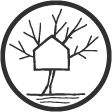Community Reinforcement Approach (CRA) is evidence-based addiction therapy. It helps you stay sober by reinforcing your connection to your social surroundings (or community). For example, helping you find new hobbies, friends, interests, support groups, a job, or anything that reinforces your sense of purpose, responsibility, or connection to your community. Ultimately you feel more positively about your sober life than you do about life in active addiction.
Created in 1973 by Nathan Azrin and George Hunt, the Community Reinforcement Approach (CRA) is based on behavioral psychology. Put simply, CRA believes that if you want to do something it’s likely because you believe that the benefits will be greater than the consequences either now or in the future. So, changing someone’s actions (like drug use) is a matter of increasing the consequences, reducing the rewards, and then finding other behaviors that bring similar rewards.
Are you or a loved one seeking addiction treatment? Meet our compassionate staff, explore our private facility, and learn about our comprehensive programs in a welcoming environment. Schedule your visit today.

Set up a tour today!

The Community Reinforcement Approach works by rebuilding your lifestyle outside of therapy. CRA helps connect you to sober activities in your community that provide rewards similar to those you got from substance use. As these take on a bigger role in your life it becomes harder to disconnect from them and return to substances. As you become more a part of your new job, events, hobbies, friend circles, support groups it raises the consequences of substance use. You have less free time, more responsibilities, more people who care about you, or people who rely on you.
There are 4 parts of CRA that work together to help you create a new sober lifestyle. The goal is to find things to replace the rewards you got from drugs and alcohol and also make it more difficult to resume your addiction.
Part 1. Functional Analysis: A functional analysis is about figuring out what function drugs and alcohol play in your life. What is it that you believe you get from substances? Your therapist will help you understand what kinds of events, circumstances, or emotions led to your past cravings.
Part 2. Skill Training: Skill training helps you avoid or better deal with emotions that lead to your cravings. Sometimes drugs or alcohol provide an escape from certain thoughts or emotions. Skill training is about practicing healthy ways to deal with situations that cause these thoughts or emotions including:
Part 3. Reward Replacement: Your CRA therapist will help you find things that occupy your time, replace the rewards you got from drugs or alcohol, and provide ways to deal with cravings.
Part 4. Job Hunting: CRA helps you find a job. Getting a job will give you more motivation to continue sobriety (feeling useful and making money) and consequences for substance use (job loss). Therapists may help you decide on a job, look at job postings, or go with you to interviews.
Tree House Recovery uses CRA and many other evidence-based therapies to help you build a life where you’re stronger and happier than ever before. Our program is about teaching you things you can do every day to remove cravings and be your best possible self. Call today to start 855-202-2138.
Talk to a Treatment Advisor Today
Talk to a Treatment Advisor Today